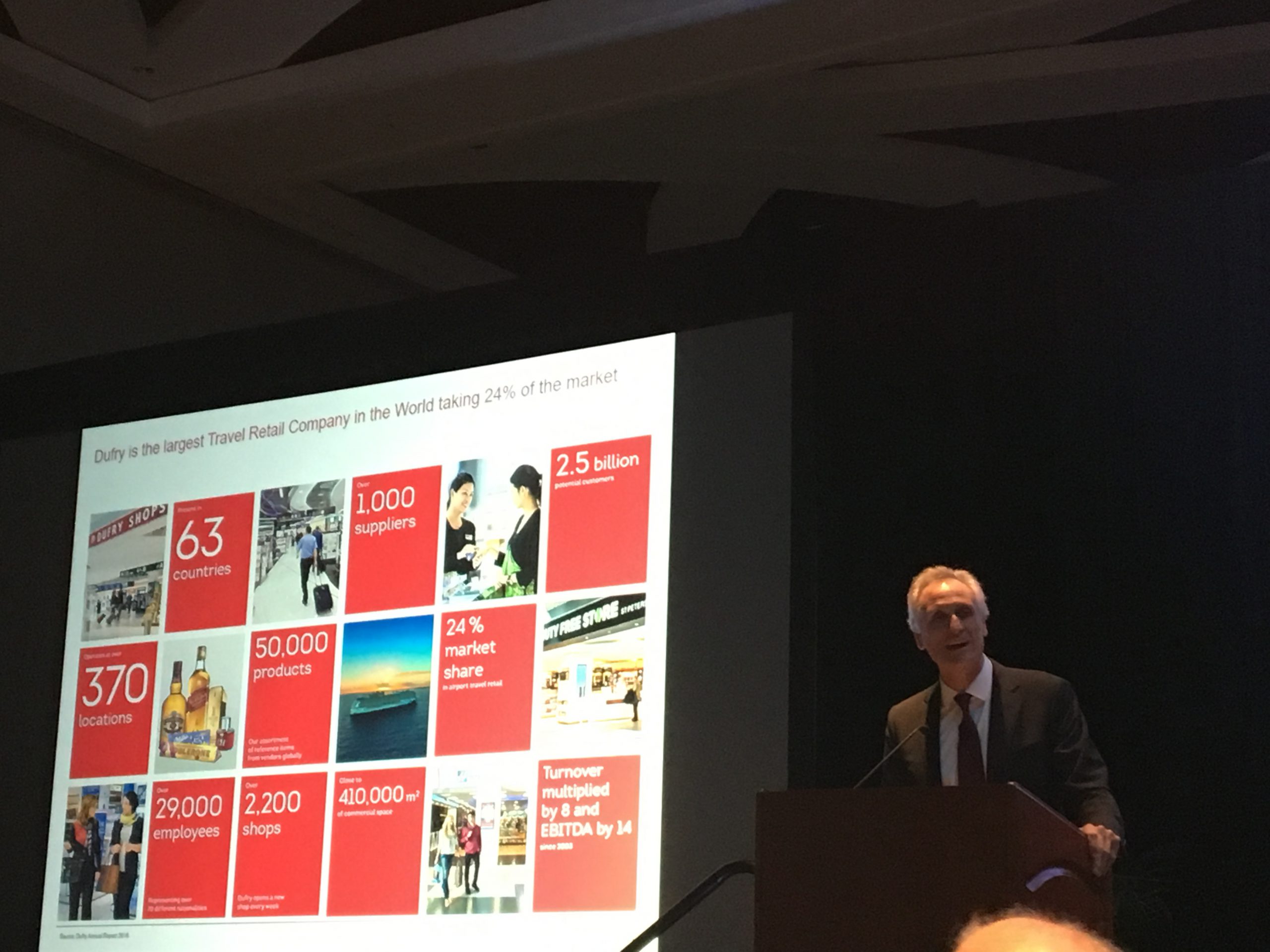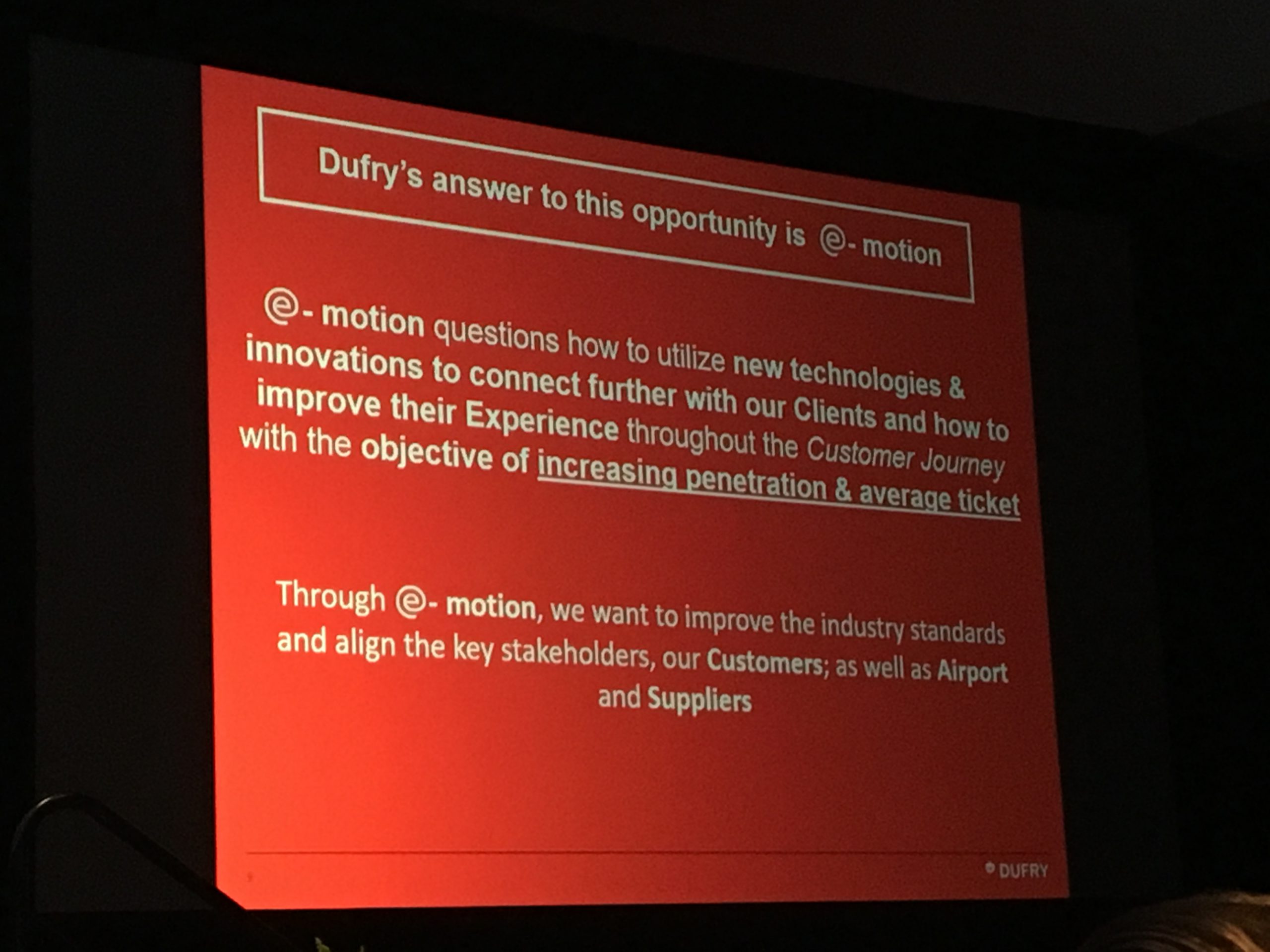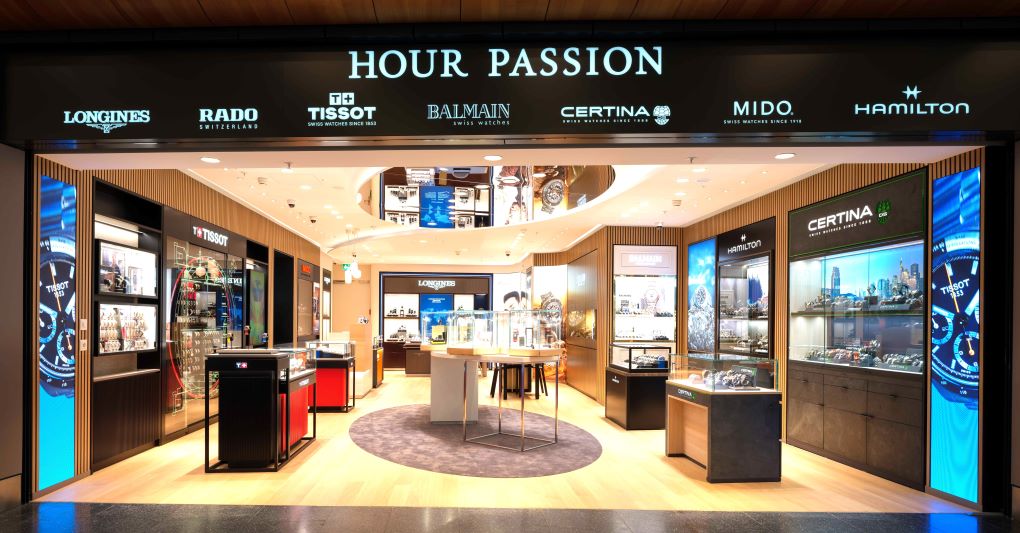AMERICAS. Delegates at the Duty Free & Travel Retail Summit of the Americas gathered this morning to hear from Dufry CEO Julián Díaz and Carnival Cruise Lines Executive Vice President & Chief Operating Officer Gustavo Antorcha.
This morning’s conference at the event, which is organised jointly by ASUTIL and IAADFS, was moderated by The Moodie Davitt Report Founder & Chairman Martin Moodie.

First to speak was Díaz who focused on the evolution of travel retail from his point of view as head of a company with 2,200 shops across 63 countries. In the Americas, the company is well represented across 200,000sq m of commercial space. The region generates CHF3.2 billion (US$3.36 billion) in sales for Dufry and represents 40% of its business.
The company sees 2.5 billion customers going through its shops each year. Díaz said: “We are one of the two retail channels that will be successful in the future – one is online and the other is travel retail.”
But the industry needs to move with the times. He said 5-10 years ago “everyone was talking about processes in airports” – how to move people from one point to another. “Things are changing and we are now dealing with totally different expectations, passengers and demographics.”
Travel retail’s target passengers have moved from mature markets to Asia and the Middle East and forecasts show these will continue to be the principal areas of growth going forward. He also pointed to Millennials as key influencers of change in the industry.
Díaz spoke at length about the digital evolution, a key driver of a more sophisticated customer with increasing demands for personalisation and convenience, he pointed out.

The company’s response is its E-motion global programme for digital engagement. The initiative aims to connect with the passenger via digital and physical means and create a 360-degree experience.
The programme’s end-game is to increase penetration and the average ticket, both of which remain unsatisfactory – only 17% of people travelling through airports make a purchase in duty free.
Díaz’ said: “We don’t want to be a digital company – we want to be a good retailer and use that knowledge to generate value.”
Omnichannel excellence
For Dufry, an omnichannel approach is key to the future. It will bring multiple elements included the Dufry Red loyalty programme; pre-order; social media; next-generation stores; and “staff digitalisation”.
Regarding the latter, Dufry is equipping its staff with iPads so they can tailor offers to customers, help them compare prices and give them on-the-spot information. Meanwhile, Dufry Red, which started in 17 countries, will be in 64 by the end of the year.

Speaking to the brand companies in the room, Díaz stressed the importance of developing travel retail-specific products. “We have an opportunity to build brand equity. We are a great channel for testing and launching new products – let’s do it together,” he said.
Touching on the concession fee model of airport retailing, Díaz reiterated his well-voiced sentiments on the subject. “This [model] is a way of extracting value in the short term, it’s not sustainable for the future. To create value for everyone, we need a new approach.”

Questioned about his views on the future of travel retail by moderator Moodie, Díaz said he is optimistic. “This is the only retail activity that will have a future compared with other [non-e-commerce] retail. According to Airports Council International, global passenger traffic is expected to grow at an average annual rate of +4-5%. In the next ten years, we are going to have double the number of customers. Let’s build the future of travel retail together.”
Cruising ahead
Carnival Cruise Lines Executive Vice President & Chief Operating Officer Gustavo Antorcha gave an insightful perspective on the dynamic cruise channel. The industry is expected to serve around 27.2 million guests this year worldwide.
Carnival Cruise Lines will have a major role to play in that growth, said Antorcha. The company has positioned itself as a collection of brands and experiences, each maintaining their own identity.

“We are able to adjust and adapt to growing markets such as Asia Pacific We are building purpose-built ships for China. There is a lot of flexibility in this market,” he noted.
“We are seeing the experience onboard changing depending on the brand – we are becoming sharper and more focused on delivering the experience to the guest.”
Antorcha outlined a brief history of Carnival, stating that the company originally built ships that were more focused on adding capacity and moving passengers. “It was less about the onboard experience. But the reality is that passengers now want experiences that facilitate those experiences,” he explained.

The onboard retail offer is also moving towards experiences. “We are seeing real innovation onboard new builds, such as branded boutiques. We are catching up to where the airports are migrating to,” he pointed out.
For example, the Majestic Princess is tailored to the Asian market with branded luxury boutiques, while its newest vessel the Horizon will feature Michael Kors, Victoria’s Secret and Swarovski boutiques among others.
Antorcha explained cruise lines traditionally worked to a high-margin concession model that ultimately compromised the quality of the retail offer. “To make the marginal economics work, we went to high-margin promotional products. The experience was second to that. We are now cleaning that up, driving experiences, and driving onboard revenue.”
He added: “Amazon doesn’t deliver at sea. Shops are not [just for] buying, they are about experiencing and it’s a form of entertainment. We are investing heavily in connecting our ships with the internet. Digital is important, but the experience onboard makes us very resilient.”
Antorcha compared the cruise market to the airport channel, stating: “We are on a similar journey, but a decade behind.”












